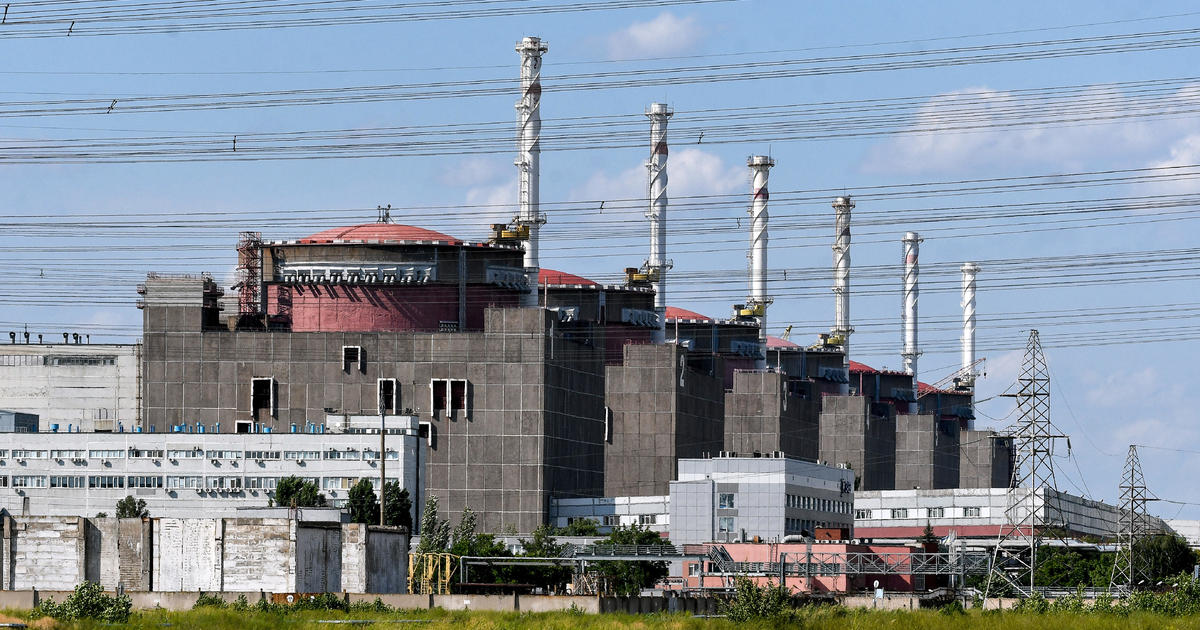
KYIV, Ukraine — A fire at Europe’s biggest nuclear plant has been extinguished, Ukrainian authorities said Friday, and Russian forces have taken control of the site, officials in Ukraine and Moscow said. There was damage to the compartment of reactor No. 1 at the Zaporizhzhia plant in the city of Enerhodar, but it doesn’t affect the safety of the power unit, the regional military administration said in a statement.
It added that operational personnel were ensuring its safety. No information was immediately available about casualties. Ukrainian officials said radiation levels in the area weren’t at dangerous levels.
Ukraine blamed the fire on Russian shelling but Moscow blamed Ukrainian saboteurs and called it a “monstrous provocation,” according to the Reuters news service.
Leading nuclear authorities were worried – but not panicked – about the damage to the power station. The assault, however, led to phone calls between Ukrainian President Volodymyr Zelenskyy and President Joe Biden and other world leaders. The U.S. Department of Energy activated its nuclear incident response team as a precaution.
Earlier, nuclear plant spokesman Andriy Tuz told Ukrainian television that shells fell directly on the facility and set fire to one of its six reactors. That reactor is under renovation and not operating, but there is nuclear fuel inside, he said.
The Zaporizhzhia regional military administration said measurements taken at 7 a.m. Friday local time (midnight EST) showed radiation levels in the region “remain unchanged and do not endanger the lives and health of the population.”
The mayor of Enerhodar, Dmytro Orlov, announced on his Telegram channel Friday morning that “the fire at the (nuclear plant) has indeed been extinguished.” His office told The Associated Press the information came from firefighters who were allowed onto the site overnight.
The assault renewed fears that the invasion could damage one of Ukraine’s 15 nuclear reactors and set off another emergency like the 1986 Chernobyl accident, the world’s worst nuclear disaster, which happened about 65 miles north of the capital of Kyiv.
British Prime Minister Boris Johnson called for an emergency meeting of the U.N. Security Council in “coming hours” to raise the issue of Russia’s attack on the plant, according to a statement from his office.
U.S. Energy Secretary Jennifer Granholm tweeted that the Zaporizhzhia plant’s reactors were protected by robust containment structures and were being safely shut down.
In an emotional speech in the middle of the night, Zelenskyy said he feared an explosion that would be “the end for everyone. The end for Europe. The evacuation of Europe.”
Dmytro Smolyenko/Future Publishing via Getty Images
“Only urgent action by Europe can stop the Russian troops,” he said. “Do not allow the death of Europe from a catastrophe at a nuclear power station.”
But most experts saw nothing to indicate an impending disaster.
The International Atomic Energy Agency said the fire hadn’t affected essential equipment and that Ukraine’s nuclear regulator reported no change in radiation levels. The American Nuclear Society concurred, saying that the latest radiation levels remained within natural background levels.
“The real threat to Ukrainian lives continues to be the violent invasion and bombing of their country,” the group said in a statement.
Orlov, the mayor of Enerhodar, said Russian shelling stopped a few hours before dawn, and residents of the city of more than 50,000 who had stayed in shelters overnight could return home. The city awoke with no heat, however, because the shelling damaged the city’s heating main, he said.
Prior to the shelling, the Ukrainian state atomic energy company reported that a Russian military column was heading toward the nuclear plant. Loud shots and rocket fire were heard late Thursday.
Later, a livestreamed security camera linked from the homepage of the Zaporizhzhia plant showed what appeared to be armored vehicles rolling into the facility’s parking lot and shining spotlights on the building where the camera was mounted.
Then there were what appeared to be muzzle flashes from vehicles, followed by nearly simultaneous explosions in surrounding buildings. Smoke rose into the frame and drifted away.
Vladimir Putin’s forces have brought their superior firepower to bear over the past few days, launching hundreds of missiles and artillery attacks on cities and other sites around the country and making significant gains in the south.
